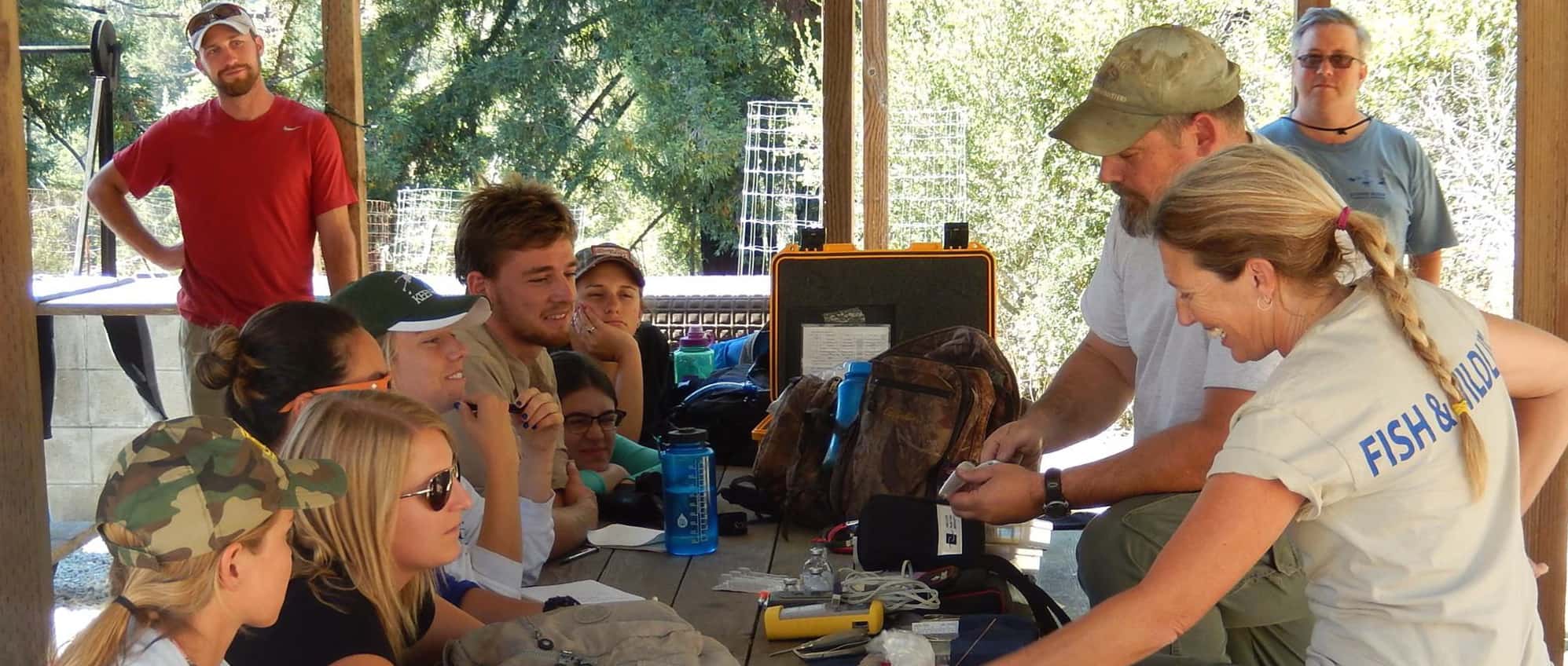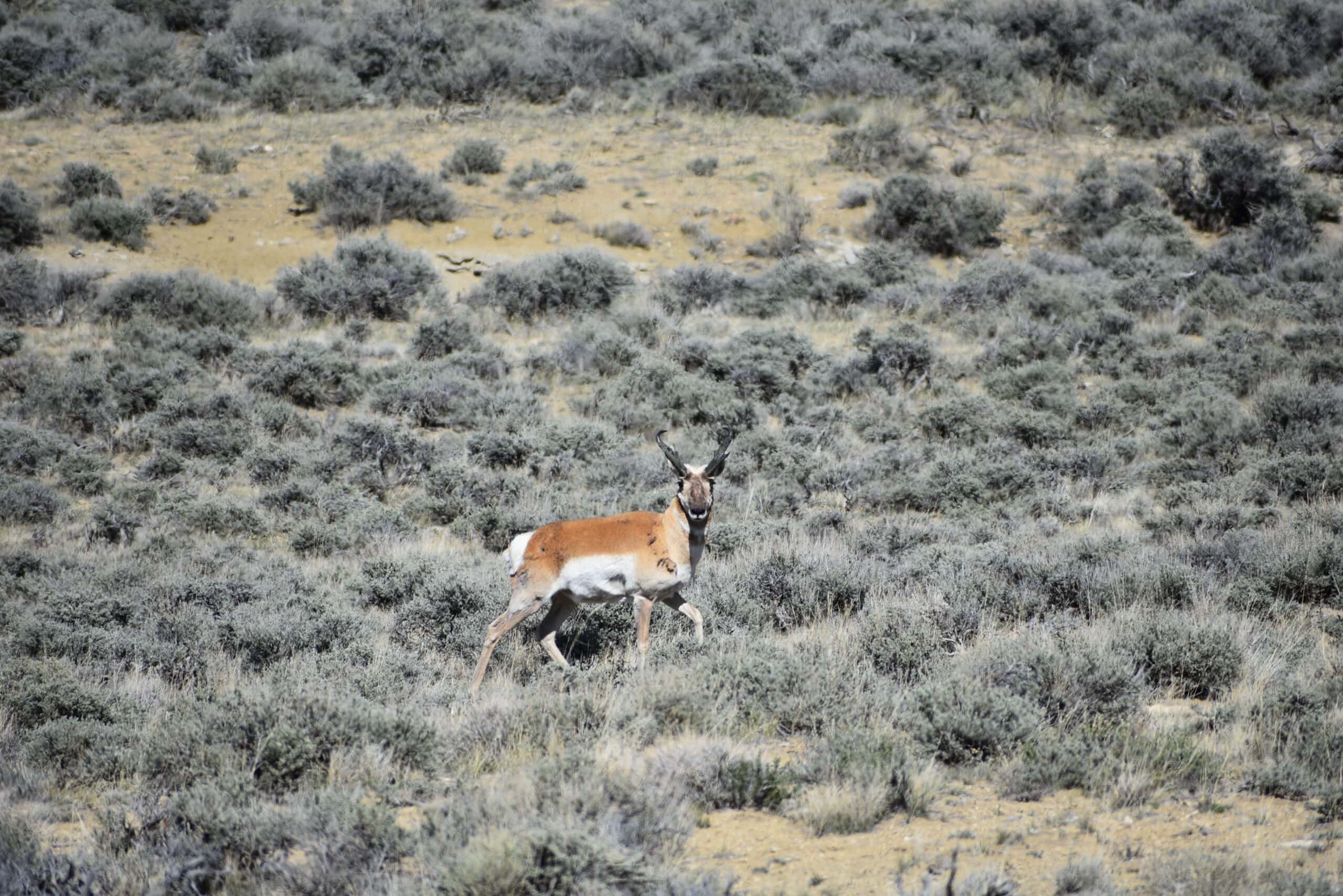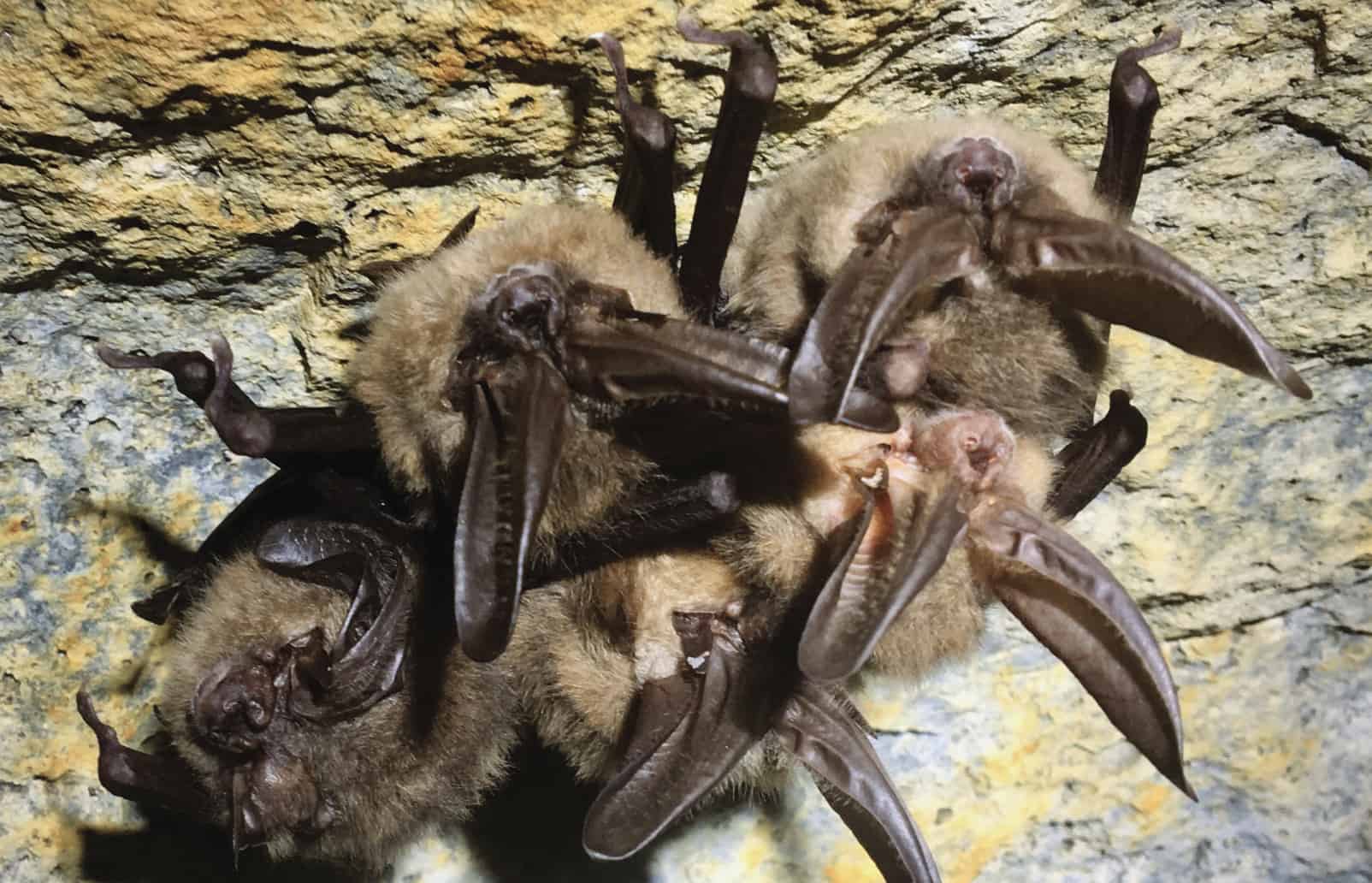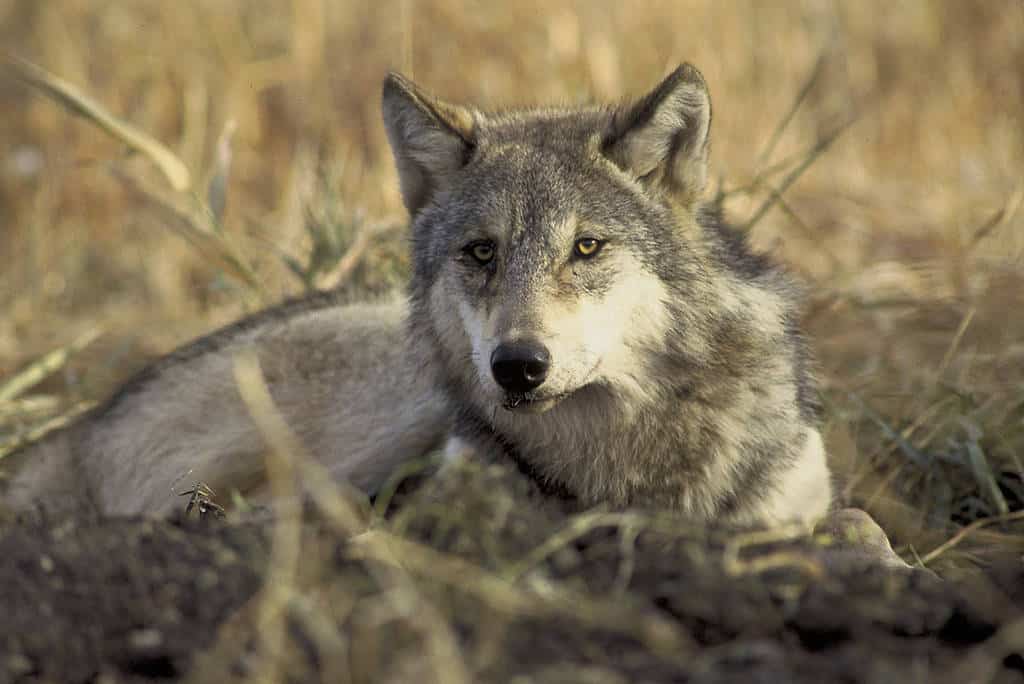Share this article
Western Section Offers Students Hands-On Experience
On a hot August day at a ranch in Davenport, Calif. wildlife biology students shaded themselves with hats and sunglasses while practicing to chemically immobilize deer with dart guns.
The students — 14 in all — were there as part of a two-week annual field camp that gives aspiring wildlife professionals the opportunity to apply skills developed in the classroom out in the field. The camp, organized by The Wildlife Society’s Western Section representative and co-coordinator of the course Cynthia Perrine and held at the Swanton Pacific Ranch, was led by the course coordinator and associate professor at California Polytechnic State University John Perrine as well as 11 wildlife professionals from agency, academic, private and non‐profit sectors.
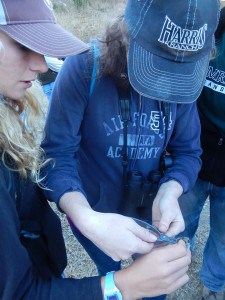
Students practice ear-tagging a mouse. As part of the Western Section field camp, students learned techniques like this combined with discussions, lectures and lab experience.
As part of the field camp, wildlife professionals demonstrated wildlife techniques in small mammal trapping and remote camera trapping, which students then tried their hand at. Students also learned to take measurement samples of chemically immobilized deer, tag them, reverse the immobilization and then release them. Participants had the opportunity to do mist-netting of bats for the first time as part of the camp, and although they weren’t allowed to handle the bats, they helped set up mist nests as well as identify bat species and record data on them.
When they weren’t out in the field, students and professionals engaged in discussions about topics such as challenges that women face in the profession. They also learned about the skills and experience needed to get TWS certification as a wildlife biologist and had the opportunity to talk informally to professionals in different sectors and ask them questions about their careers.
At the end of the course, the students received four units of credit and a grade for the course, which Perrine said is a quarter’s worth of instruction in only two weeks. They also took quizzes and tests throughout the course.
“I have gained so much in these past two weeks, more than I imagined,” said one student in an anonymous course evaluation. “These skills I have learned I hope to take with me to future jobs and internships.”
Header Image: Instructors from California Department of Fish and Wildlife discuss chemical immobilization techniques and gear with students at the Western Section field camp earlier this month. Fourteen students were able to get hands-on experience in the field as part of this course.
Image Courtesy: Western Section of The Wildlife Society Facebook



